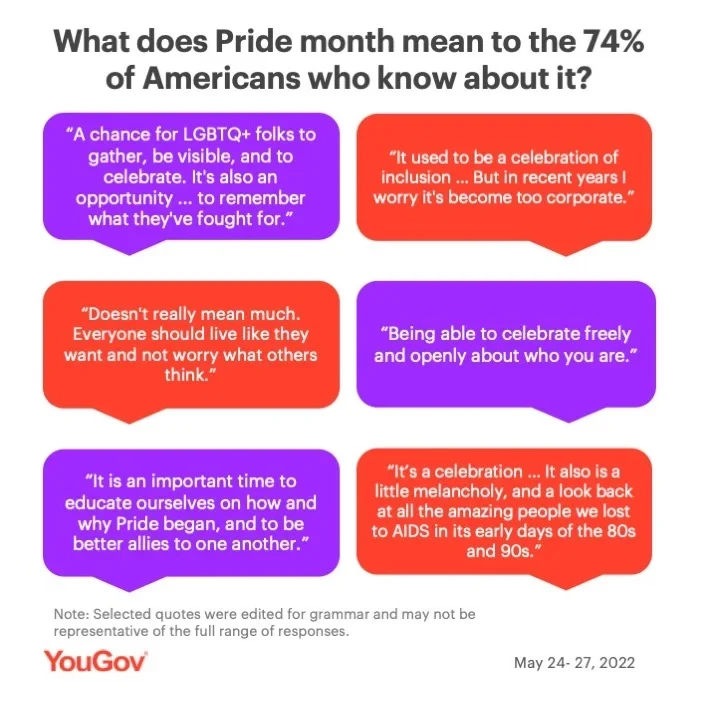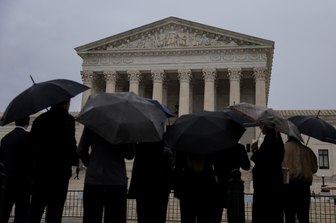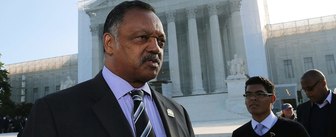Ahead of Pride Month, YouGov asked Americans about their familiarity with the history of Pride, their plans to celebrate, and their ideas about what the future might hold for LGBTQ+ people and communities.
Most Americans are at least somewhat familiar with the history of Pride Month, with 13% saying they know “a lot” about the month’s history, and 53% saying they know "a little." About one-third (34%) say they know nothing about the history of Pride Month.
Americans who identify as LGBTQ+ (lesbian, gay, bisexual, transgender, queer, non-binary, etc.) are more likely than Americans overall to be familiar with the history of Pride Month: 31% say they know a lot about it and 54% say they know a little about it.
One in five (20%) Americans say they’ve attended a Pride celebration. Americans 65 and older are among the groups who are least likely to have attended a Pride celebration, at 10%. Among 45- to 64-year-olds, 16% have attended. Americans who are 30- to 44-years-old are the most likely age group to have attended a Pride celebration, at 31%. One-quarter (25%) of adults under 30 also have attended a Pride celebration.
Nearly three in five (59%) LGBTQ+ people say they have attended a Pride celebration at some point.
This year, around one in eight (12%) Americans plan to participate in Pride activities or celebrations. Half of LGBTQ+ Americans (51%) will participate in Pride Month activities or celebrations, while 37% will not and 13% are unsure.
Asked what Pride means to them in an open-ended question, Americans told us about celebration and history. Some also expressed concerns about the relevance of the event today.

How much discrimination do Americans believe LGBTQ+ people face?
When asked how much discrimination they believe various groups of people face in America today, majorities agree that transgender men, transgender women, gay men, and lesbian women all face at least a fair amount of discrimination.
Nearly two in five (37%) Americans say transgender men face a great deal of discrimination, and 36% believe they face a fair amount of discrimination. Similar percentages believe transgender women face a great deal (36%) and fair amount (34%) of discrimination.
Close to one-quarter (24%) think gay men face a great deal of discrimination, while 39% believe they face a fair amount. Fewer believe that lesbian women face a great deal (19%) and fair amount (37%) of discrimination.
LGBTQ+ people are more likely to see these groups as facing a great deal of discrimination than are Americans overall. A majority say transgender men and women face a great deal of discrimination. Among LGBTQ+ people, 43% think gay men face a great deal of discrimination and 36% think lesbian women do. (LGBTQ+ people also are more likely than Americans overall to say that other groups we polled about — Arab, Asian, Black, and Hispanic Americans — face a great deal of discrimination.)
How Americans see the LGBTQ+ community, today and in the future
About one-quarter (26%) of Americans say things have improved for the LGBTQ+ community over the last year. Another 36% think things have stayed the same, while 23% believe things have gotten worse.
LGBTQ+ are more likely than Americans overall to say things have gotten worse for their community in the past year (34%), though a similar number (35%) say things have stayed the same. About one in five (21%) say things have improved over the last year.
Assessments for a year from now are similar to evaluations of the past year. Looking forward to one year from now, 22% of Americans think things will have improved for LGBTQ+ people in America. The largest share (39%) think things will stay the same, and 20% think things will get worse.
LGBTQ+ people are especially likely to predict things will get worse for their community in the year to come, at 35%. Slightly fewer (31%) think things will stay the same, and 23% think things will improve.
There’s more hope for 2032. Close to two in five (38%) Americans say things will improve for LGBTQ+ people by 2032. Another 27% think things will stay the same, and half as many (14%) think things will get worse.
Among LGBTQ+ people, 41% think things will improve in the next decade. About one-quarter (26%) think things will stay the same, and 20% say they will get worse.
Looking to 50 years in the future, many Americans anticipate LGBTQ+ people being elected or appointed to the nation’s highest offices.
Close to half (48%) say it’s very or somewhat likely that a gay man will be president within the next 50 years. A similar percentage (44%) think it’s likely a lesbian woman will be president in this timespan.
Close to three in 10 Americans (29%) say it’s likely that a transgender man will be president in the next 50 years. The same share say it’s likely a transgender woman will be president.
LGBTQ+ people are especially likely to predict people from these groups eventually becoming president. More than half (57%) anticipate a lesbian president within the next five decades, and 54% believe it’s likely a gay man will be president. Nearly half (47%) think it’s likely a transgender man will be president within 50 years and 43% think it’s likely a transgender woman will hold the highest office in this time.
Predictions are similar when it comes to the likelihood of a gay, lesbian, or transgender person being appointed to the Supreme Court. More than half of Americans think it’s likely they will see a gay man (55%) or a lesbian woman (54%) appointed to the Supreme Court within the next 50 years. Opinions are similar among LGBTQ+ Americans: 56% say it’s very or somewhat likely a gay man will be appointed to the Supreme Court within the next 50 years, and around half (52%) anticipate a lesbian woman being appointed.
The percentages anticipating a transgender person on the Court in the next half-century do differ between LGBTQ+ Americans and Americans overall. Just 33% of Americans expect a transgender man on the Court in that timespan, and 35% expect a transgender woman to be appointed. Among LGBTQ+ Americans, 47% think a transgender woman will be appointed to the Supreme Court within the next five decades and a similar share (45%) expect a transgender man to be on the Supreme Court.
— Taylor Orth contributed to this article
Related:
- Should students learn about LGBTQ+ history? Americans say it depends on the grade level
- How much do Americans know about the history of women’s rights in the U.S.?
This article was based on two polls conducted between May 23 - 27, 2022, among 1,000 U.S. adult citizens. Explore more on the methodology and data for these polls.
Image: Pexels by Rosemary Ketchum













